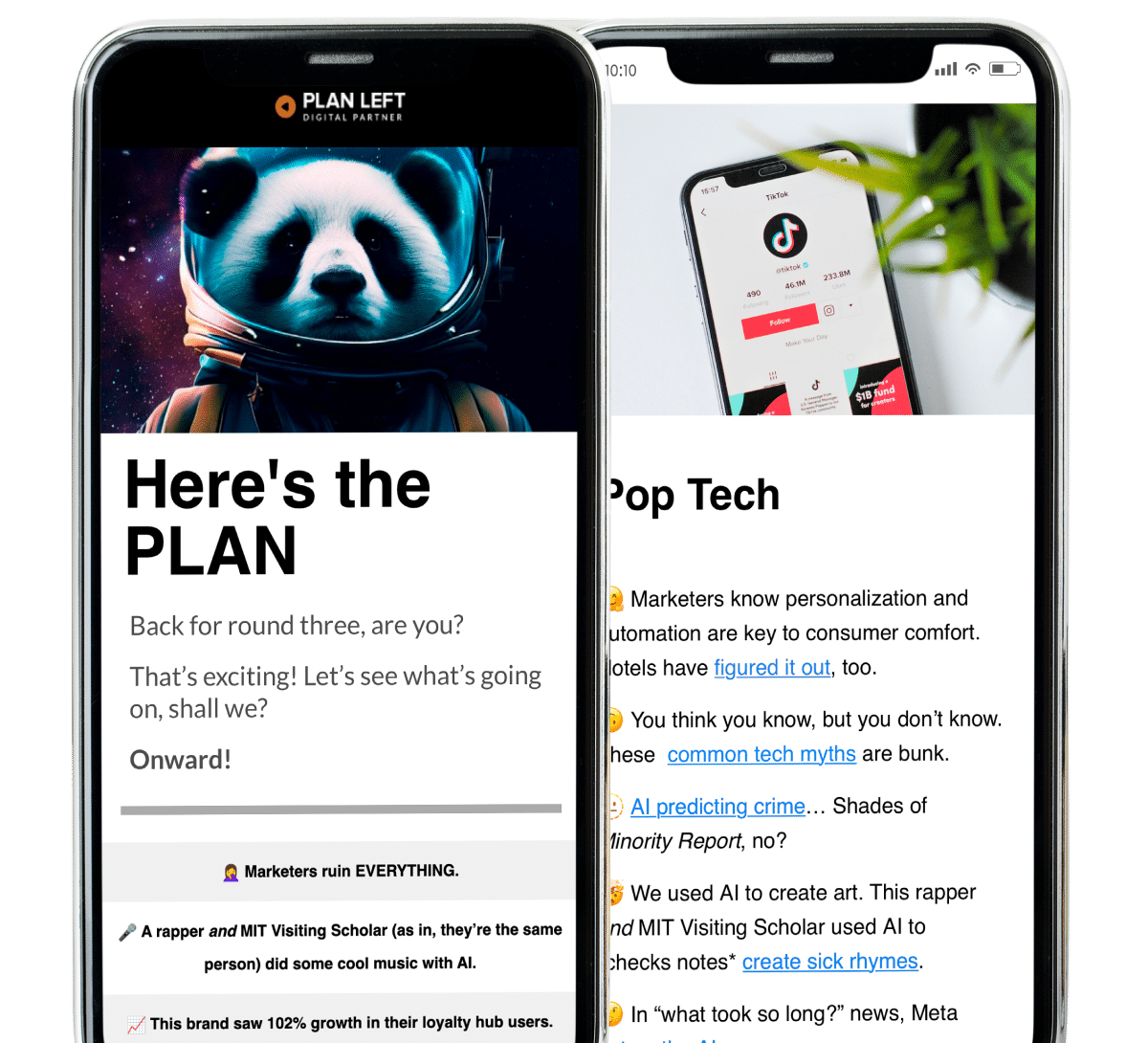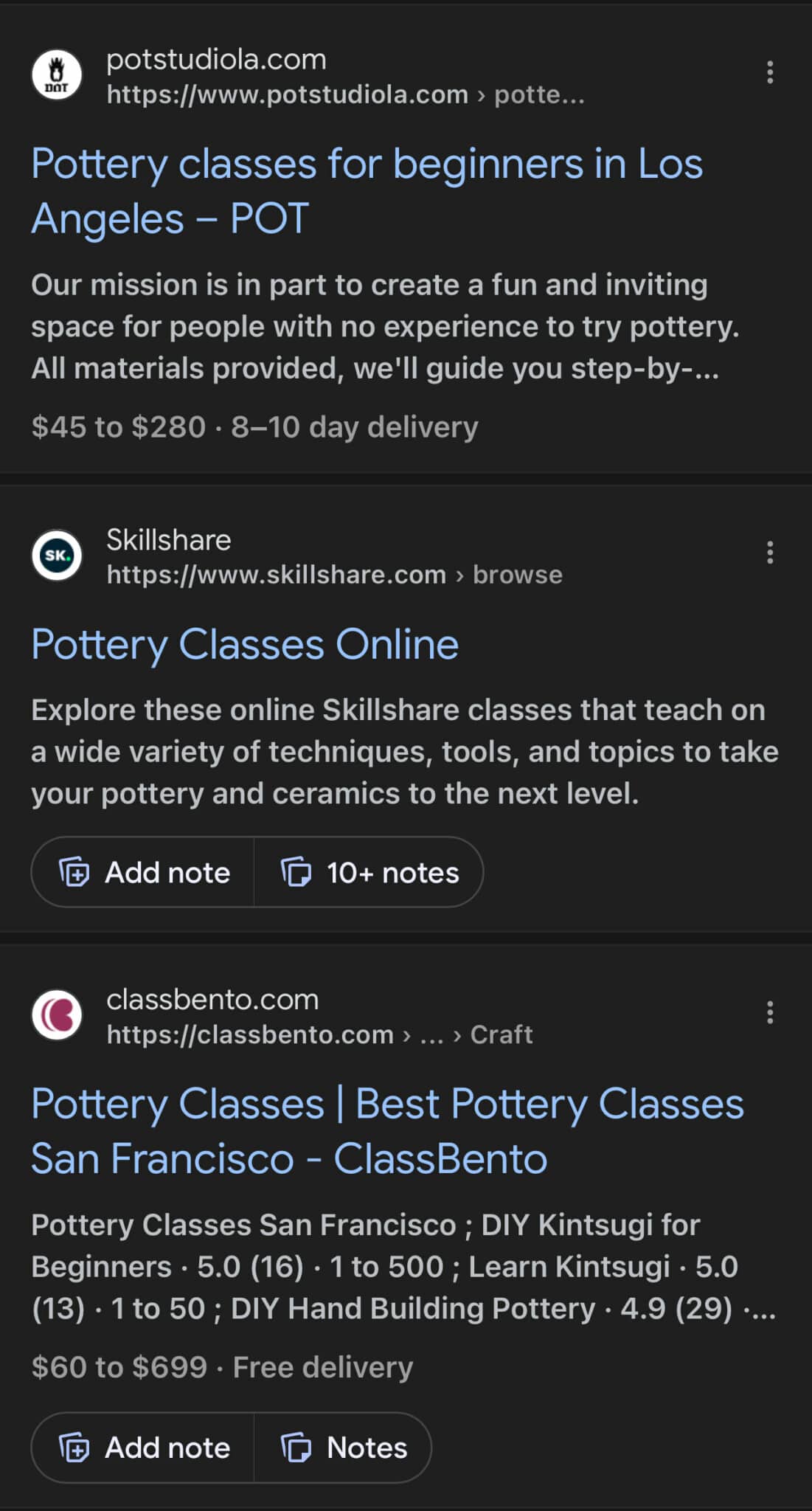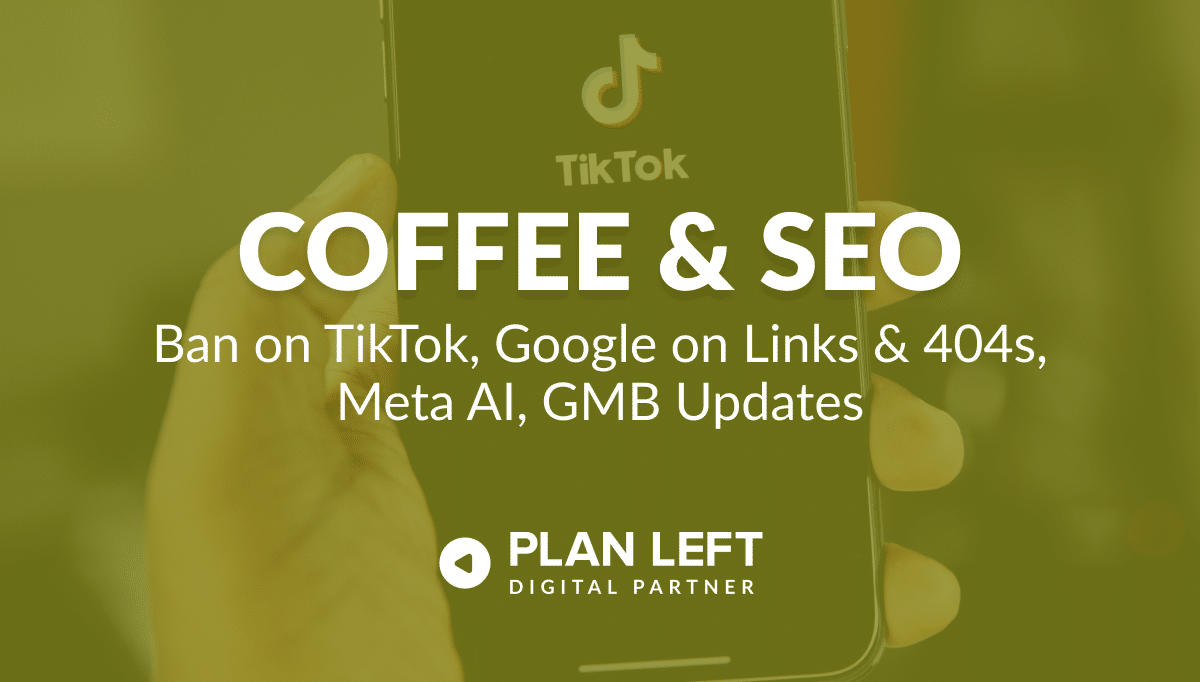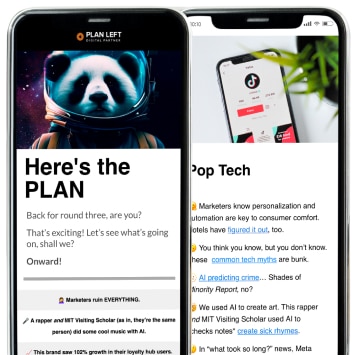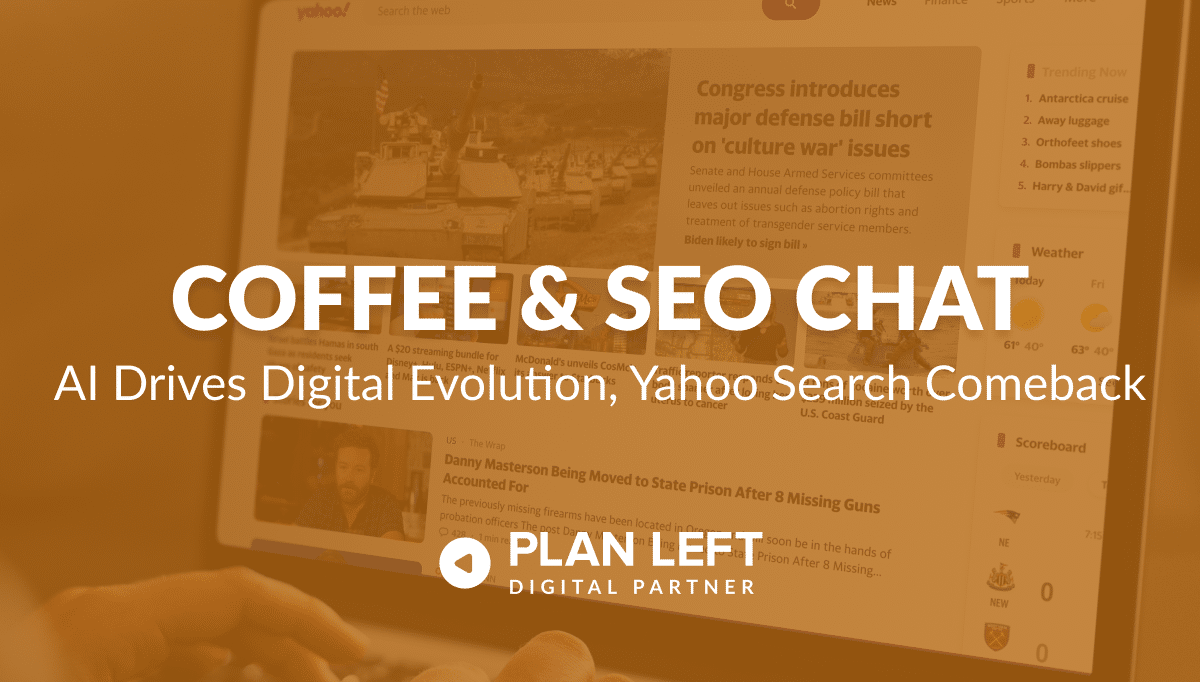
This week Google is at the forefront of reshaping user experiences in search and online shopping. From prioritizing first-hand knowledge in search rankings to proposing a global framework for AI regulation, Google is redefining the digital landscape. Meanwhile, Yahoo is preparing for a major comeback in 2024 with an updated search experience. Amidst these, we also explore AI’s potential to detoxify social media and the strategic importance of image optimization in Google’s evolving search environment.
Image Optimization in Google’s SGE Era

For businesses, this evolution in Google’s search technology signals a critical need to prioritize image optimization. In the AI-driven digital marketplace of SGE, images go beyond their traditional role as mere content supplements. They become pivotal in capturing user attention and effectively conveying a brand’s message in a densely populated digital landscape.
To leverage this shift, businesses must adopt a strategic approach to image optimization, focusing on:
- Descriptive Alt Text: Crafting detailed, relevant alt text for each image is crucial. This not only aids search engines and screen readers in understanding the image’s context but also bolsters SEO and accessibility.
- Image Compression: Employing tools to compress images without compromising quality allows for quicker loading times, enhancing the overall user experience.
- Responsive Design: Optimizing images for seamless display across various devices, from desktops to smartphones, is essential in today’s multi-platform digital world.
- File Format Choices: Choosing the right file format for each image type, like JPEG for photos and PNG for graphics with transparency, significantly impacts visual quality and loading efficiency.
In this new era of search, every image represents a potential engagement point with your audience. Each Google search becomes an opportunity to showcase the best of what your business offers. The integration of AI in Google’s search engine, particularly through SGE, is more than just a technological leap; it’s a strategic shift that demands a nuanced understanding of digital content dynamics. By effectively optimizing images, businesses will enhance their online presence, making sure that every pixel plays a part in their compelling digital narrative.
YouTube’s Evolving AI Content Guidelines
YouTube’s recent update on AI-generated and altered content policies marks a significant turning point in digital media. This move by the platform regulates content and shapes the future of digital content creation in an AI-influenced era. For businesses and creators, understanding and adapting to these changes is crucial for maintaining a strong presence on the platform.
The core of these new policies revolves around transparency and ethical responsibility. YouTube’s requirement for creators to disclose AI-generated or altered content, especially in sensitive areas like political or public figure representations, underscores a commitment to authenticity and viewer awareness. This policy change is a response to the growing sophistication of AI technologies like deepfakes, which pose unique challenges in discerning real from synthetic media.
For businesses and creators, the implications are profound. The mandatory disclosure policy necessitates a new level of diligence in content creation and presentation. It’s no longer just about the content itself but also about how it’s created and perceived. This shift demands a strategic reevaluation of how AI tools are used in content creation, ensuring compliance with YouTube’s guidelines while preserving creative integrity.
YouTube’s introduction of new removal request options for individuals and music artists reflects a growing concern for personal and intellectual property rights in the digital age. This move empowers individuals and artists to protect their identity and work, setting a precedent for digital rights management in an AI-driven landscape.
The platform’s enhanced content moderation efforts, leveraging AI to support human reviewers, indicate a sophisticated approach to managing the vast array of content on YouTube. This blend of technology and human judgment is critical in navigating the complex interplay between creative freedom and community standards.
For businesses and creators, aligning with these updates means rethinking content strategies. It involves not only adhering to the new guidelines but also understanding the broader implications of AI in content creation. This includes:
- Regularly Reviewing Policy Updates: Staying informed about YouTube’s evolving guidelines is essential for compliance and strategic planning.
- Enhancing Transparency: Clearly disclosing AI usage in content creation, especially when it could significantly impact viewer perception.
- Investing in Ethical AI Practices: Ensuring that AI tools are used responsibly, aligning with both YouTube’s policies and broader ethical standards.
- Engaging in Remediation Efforts: Being prepared to respond to policy violations or community feedback regarding AI-generated content.
YouTube’s policy update is more than a regulatory change but a reflection of the evolving changes in digital media in the AI age. For businesses and creators, it presents challenges and opportunities to innovate responsibly, making sure their content remains impactful, authentic, and aligned with the platform’s vision for a safe and transparent digital ecosystem.
Google Notes Adds to Search Experience
Google’s introduction of the “Notes” feature, a novel experiment from Google’s Search Labs, is set to redefine user interaction with search results. This innovative functionality, currently available in the U.S. and India on mobile devices via the Google app, allows users to add personal notes to search results and view comments left by others. This development is not just a new feature; it’s a transformative approach to search, blending personal insights with digital information.
The significance of Notes lies in its potential to enhance the search experience with a layer of human perspective. Users can now contribute personal experiences and tips directly alongside search results, enriching the information landscape with diverse viewpoints. This is particularly impactful in areas where personal anecdotes and advice add depth and context, such as travel guides, culinary websites, or product reviews.
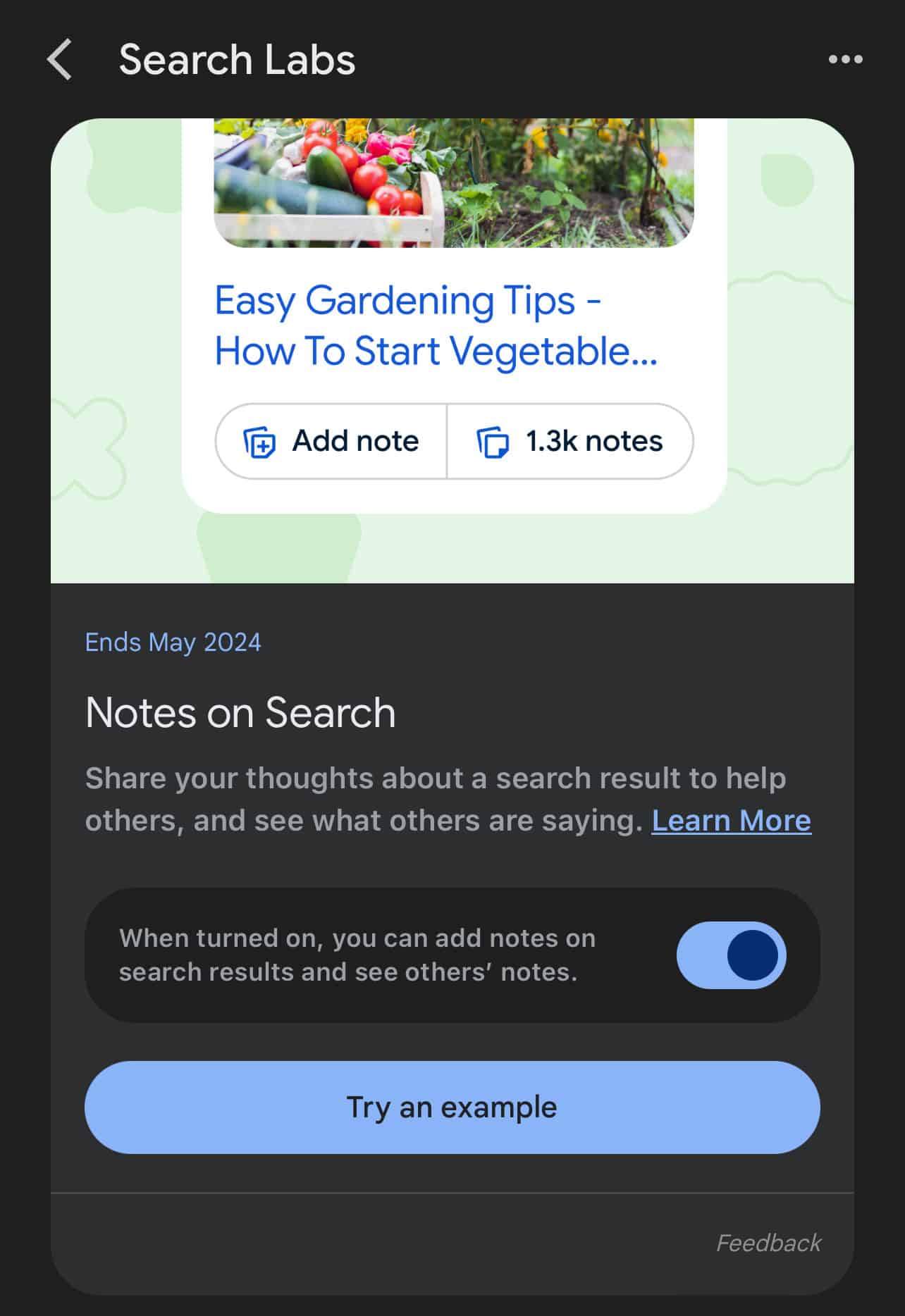
For businesses and content creators, the introduction of Notes heralds a new era in digital engagement and SEO strategy. The ability for users to leave comments on search results introduces a direct channel for audience feedback, which influences public perception and brand reputation. This feature offers an unprecedented opportunity for businesses to gain real-time insights from their audience, informing content strategies and product improvements.
To effectively navigate this new feature, businesses and creators should focus on:
- Monitoring User Feedback: Regularly reviewing the notes left by users on their content can provide critical insights and highlight areas for improvement.
- Engaging with the Audience: Actively responding to user comments and participating in discussions can strengthen customer relationships and enhance brand visibility.
- Adapting Content Strategy: Integrating insights gleaned from user notes into content creation can make it more relevant, engaging, and user-centric.
To maintain the quality and safety of the Notes feature, Google is employing content moderation strategies so that the notes remain relevant and beneficial. This approach is most welcome in preserving the integrity and usefulness of the search experience.
Looking ahead, Google plans to provide site owners with insights derived from notes on their content. This initiative demonstrates Google’s commitment to fostering a collaborative environment with website owners, potentially integrating these insights into tools like Google Search Console.
Google Calls Out First-Hand Knowledge in Search Results
Google’s update to its search algorithm introduces a significant shift, prioritizing content that showcases first-hand knowledge and personal experiences. This evolution in Google’s search aims to align search results more closely with content that offers individual insights and unique perspectives, enhancing the overall search experience with a touch of personal authenticity.
For businesses and content creators, this algorithmic change is a clear signal to pivot towards creating authentic, original content (if the Helpful Content Update wasn’t clear enough, here you go). The focus is now on material that reflects personal expertise or experiences (E-E-A-T anyone?), crucial for achieving visibility in Google’s search results.
This shift represents a move from generic, aggregated content, encouraging material that genuinely connects with users’ desire for personal and detailed information. Each piece of content in this updated search context is an opportunity to connect with your audience. Every Google search is a chance to demonstrate the unique insights and value your business provides.
This new focus on first-hand knowledge in search algorithms is more than a technical update but a strategic shift that requires a nuanced approach to content creation, emphasizing the importance of genuine, insightful material.
“Google-Safety” Crawler
Google’s recent unveiling of the “Google-Safety” crawler marks a significant advancement in its web crawling capabilities, particularly in the realm of online security. This newly documented crawler, part of Google’s array of specialized web crawlers, is specifically designed to enhance the safety of Google’s search results by identifying and mitigating malware threats.
The Google-Safety crawler represents a strategic move by Google to bolster the security of its search engine. Unlike common crawlers that index various types of content or user-triggered fetchers activated for specific tasks, the Google-Safety crawler is dedicated to detecting malware in publicly posted links on Google properties. This specialized crawler operates uniquely, disregarding the standard protocols set in robots.txt files, a departure from the norm observed in other Google crawlers.
As Google intensifies its efforts to safeguard its search results against security threats, making sure that websites are free from malware becomes a matter of security, visibility, and credibility in Google’s search results.
Make sure you won’t be impacted by:
- Prioritizing Web Security: Making sure that websites are secure and free from malware is now more crucial than ever. This involves regular security audits and updates to keep the site safe.
- Understanding Crawler Behavior: Recognizing the unique behavior of the Google-Safety crawler and its impact on how Google assesses website security.
- Staying Informed: Keeping current on updates in Google’s crawling technology and understanding how these changes affect website indexing and ranking.
The introduction of the Google-Safety crawler is more than just a technical update but a clear indication of Google’s commitment to providing a secure search experience. For businesses, this means recognizing the importance of web security in maintaining a strong online presence.
E-E-A-T in eCommerce
Google’s emphasis on Experience, Expertise, Authoritativeness, and Trustworthiness (E-E-A-T) is reshaping how your brand presents itself online. This focus on authenticity and expertise is not a trend but a fundamental shift in how eCommerce brands engage with their audience.
For online shoppers, the authenticity of a brand and its products is paramount. Consumers seek out sites demonstrating genuine experience and expertise, valuing user-generated content and personal insights over generic information. This shift demands that eCommerce brands step out of anonymity and build strong E-E-A-T signals, both on their websites and across digital platforms.
This means eCommerce brands must:
- Showcase Real Experts: Highlight individuals with genuine expertise and experience related to the products or services offered. This could be through detailed author bios, personal stories, or showcasing real-life use of products.
- Build Trust with Authenticity: Authenticity is key. Your brand needs to be transparent about their expertise and avoid creating fictitious personas. Real human stories and experiences resonate more with consumers.
- Engage with User-Generated Content: Encourage and showcase user-generated content. Reviews, testimonials, and real-life stories add a layer of trust and authenticity that can’t be replicated by generic content.
- Extend Beyond the Website: E-E-A-T isn’t confined to a brand’s website. It extends to social media and other digital platforms where your brand can demonstrate its expertise and engage with its audience in a more personal and direct way.
Every interaction with customers is an opportunity to demonstrate the unique value and authenticity of your brand. Google’s focus on E-E-A-T is a reminder that in the digital marketplace, genuine human connections and expertise are more valuable than ever. By embracing this approach, your eCommerce brand builds stronger relationships with its audience, leading to greater trust and loyalty.
Watercooler Highlights
Don’t miss the highlights. There’s still more to chat about, with Google Maps travel and navigation updates and Yahoo’s 2024 comeback. Plus, it wouldn’t be SEO news without a little AI talk.
Google Maps Enhances Travel & Navigation Features
Google Maps introduced new features to improve travel planning and navigation. These updates include eco-friendly routing options, expansion to more countries, and the provision of users with the most fuel-efficient routes. Google Maps is also enhancing its live view feature, making navigating complex intersections and unfamiliar areas easier. These updates aim to make travel more efficient and environmentally friendly.
AI’s Potential to Reduce Social Media Toxicity
A recent study explores the use of AI in making social media platforms less toxic. The study focuses on a chatbot designed to intervene in online conversations that could potentially lead to harassment or negative interactions. Preliminary results show promise in using AI to detect and mitigate harmful online behavior, suggesting a future where social media experiences are safer and more positive.
Google’s Global Approach to AI Regulation
Google proposes a global framework for AI regulation, emphasizing the need for international cooperation. This approach aims to address the challenges and ethical considerations of AI development and deployment. Google’s proposal highlights the importance of balancing innovation with responsibility, making sure AI benefits society while minimizing risks.
Yahoo Search’s 2024 Revamp
Yahoo Search is set to undergo a significant update in early 2024. This revamp will initially focus on basic features, including a visual redesign and interface improvements, followed by integrating advanced AI technology. The update marks a pivotal moment for Yahoo Search, which is looking to enhance user experience and reestablish its presence in the search engine market.
If you are looking to elevate your online presence and drive meaningful engagement, Plan Left is your ideal partner. With our experience in website development and proven SEO strategies, we are committed to delivering results that not only meet but exceed your expectations. Reach out to us today to discuss your future success.
Explore Latest Posts
Back in 2021, Google’s Martin Splitt mentioned Centerpiece Annotations during a Duba webinar, and earlier this month, Gary Illyes mentioned ... read more
April 30, 2024
Since the last round of Core and Spam updates knocked nearly 40% of websites out of Google’s search index, it ... read more
April 26, 2024
Google says the quality of your webpage is a ranking factor, but what is ‘quality’ according to Google? That would ... read more
April 19, 2024
MARKETING insights
Join the Thousands Who Receive Our Twice-Monthly Newsletter.
It's hard to keep up. Our newsletter is packed with buyer behavior insights, the latest marketing and technology updates, work/life balance tips, and—because we ❤️ our support staff—adorable pets looking for forever homes. Only twice per month. No clogged inboxes. You can't say no.
